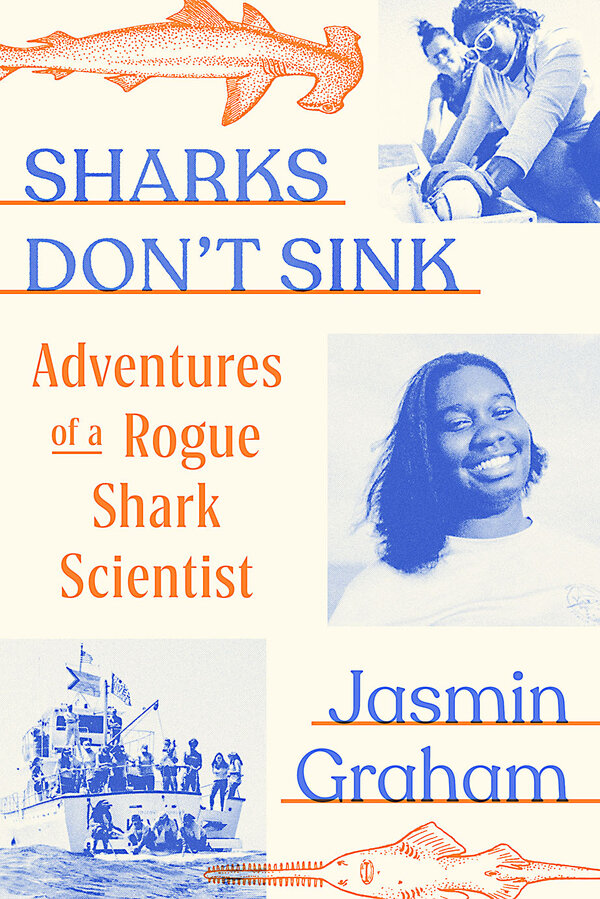What do scientists have to learn from wildlife? The value of diversity.
Loading...
Jasmin Graham, a marine biologist, had no idea there were other Black researchers like herself who studied sharks. It wasn’t until those women began posting images of themselves on social media in 2020 under #BlackinNature that she found her community.
The discovery was meaningful to Graham, who specializes in elasmobranch ecology and evolution. Unlike most researchers, she currently works outside of any academic affiliation or institution. As she explains in her lively autobiography, “Sharks Don’t Sink: Adventures of a Rogue Shark Scientist,” her work is a direct result of perseverance, constant innovation, and a fierce love for others.
While the book travels back and forth along the timeline of Graham’s life, it focuses primarily on her first “rogue” year out in the field. Graham explains how, after much consideration, she left her Ph.D. work at Florida State University after a man on campus took several years’ worth of her research and published a misleading paper under his own name. (More on the incident and the man’s eventual exit from the school two years later awaits the reader.)
Through the turmoil, Graham took to heart her mother’s advice. As a child, when she had felt lonesome and adrift in her school cafeteria, Graham’s mother wisely told her, “Make a new table.”
Now, as an adult, Graham takes the idea a step further by conducting research on her own terms. Since she does not have access to funding that is reserved for those with doctorates, she finds creative ways to obtain a boat, the right gear, and sufficient software for reviewing data. For instance, she’s found a way to take efficient specimen measurements with an app on her phone that costs only $3, rather than relying on expensive laser photogrammetry. Through her resourcefulness and the support of mentors such as Tonya Wiley and allies like Catherine Macdonald – other Florida-based, female scientists who have each founded their own nonprofits – her work continues.
She’s also mentoring budding marine biologists. On Juneteenth of 2020, Graham and three other scientists came together under the banner of Dr. Macdonald’s nonprofit Field School to establish a group called Minorities in Shark Sciences. Every summer, MISS welcomes young scientists who identify along a range of marginalized genders, races, and ethnicities, who learn how to catch sharks, handle them safely, and collect data effectively.
For Graham, the work is a dream come true. She writes, “Projects like these – that are close to my roots and my heart – are what drive me. ... Here, my curiosity can shine a light on the lives of the marine animals and communities I love, helping to get everyone included in the conversation – not just those who have letters after their name or who own beachfront property.”
One of the consistent threads throughout the book is the multifaceted nature of diversity and how that diversity fosters survival for all. For example, Graham discusses how biodiversity in wildlife helps maintain a healthy ecosystem, and yet the science community is “still very slow on the uptake when it comes to realizing this concept applies to them as well,” she writes. “If you make everyone the same, you are all susceptible to the same things. The chances of you encountering something no one in the group can handle decreases when there is more variation.”
While the book deals with serious matters like diversity and inclusion, there’s a youthful levity to Graham’s writing. It leaves the reader with hope for the future. As her literary agent once told her: “If we all waited till we were old to write a book, we’d miss out on some great perspectives.”
This author offers a fresh, inspiring perspective.







